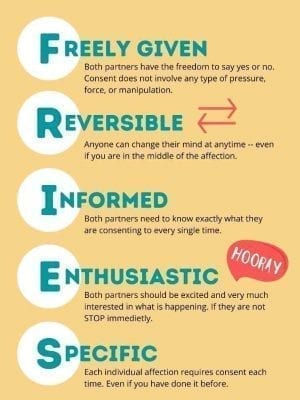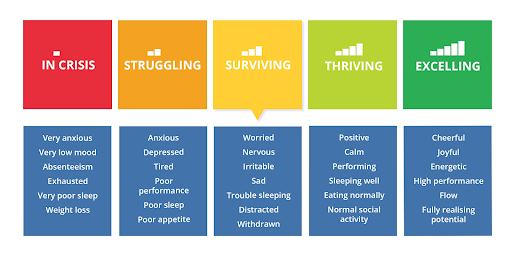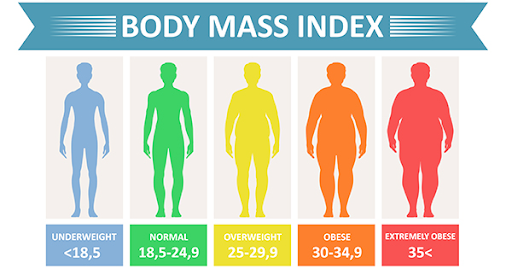Health 2022 Exam
5.0(1)
Card Sorting
1/29
Last updated 9:07 PM on 11/10/22
Name | Mastery | Learn | Test | Matching | Spaced | Call with Kai |
|---|
No analytics yet
Send a link to your students to track their progress
30 Terms
1
New cards
Differnet types of relationships
1. Family
2. Friendships
3. Peer groups
4. Intimate relationship
2. Friendships
3. Peer groups
4. Intimate relationship
2
New cards
Effective Conflict resoultion methods-
1. Accommodation
2. compromise
3. Avoidance
4. Competition
5. Collaboration
2. compromise
3. Avoidance
4. Competition
5. Collaboration
3
New cards
Accomadation
It is best used in situations where: One party wishes to indicate a degree of fairness. It is more important to safeguard the relationship rather than argue about the issue.
4
New cards
compromise
This is a win/lose – win/lose situation, i.e. everyone involved gains and loses through negotiation and flexibility, to find common ground and maintain the relationship.
5
New cards
Aviodance
this is a lose/lose situation. Neither party takes action to address the issues involved in the conflict, meaning that it will remain unresolved. This approach is best used: If all concerned feel that the issue is a minor one and will be resolved in time without any fuss. When the parties need a chance to cool down and spend time apart.
6
New cards
competition
This is a win/lose situation. One party attempts to win the conflict through dominance and power. This approach is best used: When all other methods have been tried (and failed). In emergency situations when quick, immediate and decisive action is called for.
7
New cards
Collabration
This is a win/win situation. It is the most effective but most difficult way of managing differences. All parties need to be willing to empathise and try to understand each other’s situation. Collaboration is most appropriate: When all parties are willing to investigate alternative solutions together that they may not necessarily have thought of on their own
8
New cards
Characteristics of healthy vs unhealthy relationships
Unhealthy: controlling behaviors, mistrust, disrespect, and poor communication.
Healthy: trust, honesty, respect, affection, communication, and safety.
Healthy: trust, honesty, respect, affection, communication, and safety.
9
New cards
Consent ( FRIES )
F- Freely given
R- Reversable
I- Informed
E- Enthusatic
S- Specific
R- Reversable
I- Informed
E- Enthusatic
S- Specific

10
New cards
Relationships and the effects on mental health
Positive relationship: Increased happiness and life satisfaction, improved psychological well-being, lower stress levels, higher self esteem and reduced risk of suicide and death.
Toxic relationships: cause feelings of low self-worth, helplessness, fear, anxiety, depression, insecurity, paranoia, and even narcissism
Toxic relationships: cause feelings of low self-worth, helplessness, fear, anxiety, depression, insecurity, paranoia, and even narcissism
11
New cards
Two-way communication
( verbal and non-verbal)
( verbal and non-verbal)
Non-verbal: Our body posture, tone of voice and the expressions on our face all convey a message
Verbal: cues such as tone, volume and pitch also contribute meaning to the words you use
Verbal: cues such as tone, volume and pitch also contribute meaning to the words you use
12
New cards
define a Right
A right is a choice to make your own opinion and entitlement to things such as education, religion and freedom of speech.
13
New cards
define responsibillites
Responsibilities are duties or something an individual should do such as following the law and rules.
14
New cards
Positive and negative impacts of social media on relationships
Postive:
1.You can connect with people who have similar interests who you might never meet otherwise.
2.Communicate easily through messages, video calls, or posts
Negative:
1. Decreased time with partner
2. Jealousy
3. Negative comparsion
1.You can connect with people who have similar interests who you might never meet otherwise.
2.Communicate easily through messages, video calls, or posts
Negative:
1. Decreased time with partner
2. Jealousy
3. Negative comparsion
15
New cards
Mental Health continuum
A range of wellbeing and health from two extreme ends: From healthy to ill, fitness to illness, people can be on any stage between.

16
New cards
Characteristics and symptoms of anxiety
- Feeling nervous, restless or tense.
- Having a sense of impending danger, panic or doom.
- Having an increased heart rate.
- Breathing rapidly (hyperventilation)
- Sweating.
- Trembling.
- Feeling weak or tired.
- Trouble concentrating or thinking about anything other than the -present worry.
- Having a sense of impending danger, panic or doom.
- Having an increased heart rate.
- Breathing rapidly (hyperventilation)
- Sweating.
- Trembling.
- Feeling weak or tired.
- Trouble concentrating or thinking about anything other than the -present worry.
17
New cards
Characteristics and symptoms of depression
- erratic sleep habits,
- loss of appetite (or increased appetite with atypical depression),
- constant fatigue, muscle aches, headaches, and back pain.
- loss of appetite (or increased appetite with atypical depression),
- constant fatigue, muscle aches, headaches, and back pain.
18
New cards
The difference between mental health and mental illness
(in relation to anxiety and depression)
(in relation to anxiety and depression)
Mental Health- Capactiy to think, feel, and act in ways that enhance our ability to Enjoy life and Deal with challenges
Mental illness- Conditions that affect a person's thinking, feeling, mood, or behaviour. Including Depression, Anxiety, and PTSD
Mental illness- Conditions that affect a person's thinking, feeling, mood, or behaviour. Including Depression, Anxiety, and PTSD
19
New cards
Psychotic and non-psychotic illnesses
Psychotic disorders: a term used to describe when people lose some contact with reality such as schizophrenia and bipolar disorder causing delusions, hallucinations, and other symptoms of psychosis.
Non-psychotic disorders, which used to be called neuroses, include depressive disorders and anxiety disorders like phobias, panic attacks, and obsessive-compulsive disorder (OCD).
20
New cards
Body image risk factors and protective factors
Risk:
- Engaging in slef comparisson
- Low Self-Steem
- Family Health history
Protective:
- High Self-steem
- Being assertive and have improved social skills
- Eating regular meals with the family
- Engaging in slef comparisson
- Low Self-Steem
- Family Health history
Protective:
- High Self-steem
- Being assertive and have improved social skills
- Eating regular meals with the family
21
New cards
Conditions related to body image
- Anorexia
- Negative body image
- Body dysmoripha
- Body dissatisfaction
- Negative body image
- Body dysmoripha
- Body dissatisfaction
22
New cards
Characteristics of “mentally healthy” individuals
- They feel good about themselves.
- They do not become overwhelmed by emotions, such as fear, anger, love, jealousy, guilt, or anxiety.
- They have lasting and satisfying personal relationships.
- They feel comfortable with other people.
- They can laugh at themselves and with others.
- They do not become overwhelmed by emotions, such as fear, anger, love, jealousy, guilt, or anxiety.
- They have lasting and satisfying personal relationships.
- They feel comfortable with other people.
- They can laugh at themselves and with others.
23
New cards
Treatment and support options available for mental illnesses
- Behavioral therapy.
- Cognitive therapy.
- Interpersonal therapy.
- Psychoanalysis.
- Psychodynamic psychotherapy.
- Supportive psychotherapy.
- Family
- Friends
- Cognitive therapy.
- Interpersonal therapy.
- Psychoanalysis.
- Psychodynamic psychotherapy.
- Supportive psychotherapy.
- Family
- Friends
24
New cards
Descriptions and signs and symptoms of mental illnesses
- Feeling sad or down.
- Confused thinking or reduced ability to concentrate.
- Excessive fears or worries, or extreme feelings of guilt.
- Extreme mood changes of highs and lows.
- Withdrawal from friends and activities.
- Significant tiredness, low energy or problems sleeping
- Confused thinking or reduced ability to concentrate.
- Excessive fears or worries, or extreme feelings of guilt.
- Extreme mood changes of highs and lows.
- Withdrawal from friends and activities.
- Significant tiredness, low energy or problems sleeping
25
New cards
BMI
is a reliable indicator of body fatness for most people. It is used to screen for weight categories that may lead to health problems.

26
New cards
Rules of Hockey
- Legal teams are 5 skaters and a goalie. Players may play on only one team. If teams compete with "borrowed" players, the -- -game is recorded as a forfeit for the short-handed team.
-All Leagues: Games are 30 minute straight play. The clock will start at game time.
-No over-time during the regular season; tie games will be recorded as such.
-No slap shots (shots taken from above the waist) at all - not during warm-ups or games.
-Offside & icing is called in the Granite League only. No offside in Green, Moosilauke or Women's Leagues.
-No checking of any kind.
-All Leagues: Games are 30 minute straight play. The clock will start at game time.
-No over-time during the regular season; tie games will be recorded as such.
-No slap shots (shots taken from above the waist) at all - not during warm-ups or games.
-Offside & icing is called in the Granite League only. No offside in Green, Moosilauke or Women's Leagues.
-No checking of any kind.
27
New cards
Samotypes
- Ectomorphic (lean)
- Mesomorphic (muscular)
- Endomorphic (large)
- Mesomorphic (muscular)
- Endomorphic (large)
28
New cards
Endomorphic
An endomorph body type is naturally predisposed to a ‘softer’ body mass and a higher body fat ratio. With a slower metabolism than the other body types. However, endomorphs also gain muscle with relative ease.
making appearance-based comparisons can strongly influence body dissatisfaction and create disordered relationships with eating and physical activity.
making appearance-based comparisons can strongly influence body dissatisfaction and create disordered relationships with eating and physical activity.
29
New cards
Ectomorphic
Those with an ectomorph body type are of slight build and possess fast metabolisms. With a low body fat and a smaller build, ectomorphs genetically find it harder than the other body types to gain body weight or build muscle mass.
30
New cards
Memsomorphic
A mesomorph body type is one that has a medium frame and bone structure. With a considerable level of lean body mass, they are genetically predisposed to an athletic body.